You may blame your lack of sleep or vegan insomnia on a number of things, including bad pillows or a lousy mattress, falling asleep with the light on, or just staying up too late. All of these things can indeed contribute to a less-than-perfect night’s sleep. More likely than not, though, it has to do with what foods you’re eating. There are certain vegan foods to eat before bed to help you sleep. Not getting enough nutrients in certain areas can interfere with your sleep, and eating the wrong thing before bed can have you sitting up awake longer than you anticipated.
Taking charge of your sleep schedule starts in the kitchen. There are five critical vegan foods that are notoriously healthy snacks or meals to eat before bed. They aren’t too heavy on the digestive system, and yet they contain the essential vitamins and minerals to ensure you sleep soundly throughout the night. Before we learn what foods are best, it is just as viable to know what about these foods helps us catch more z’s.
Key Nutrients For Curing Vegan Insomnia?
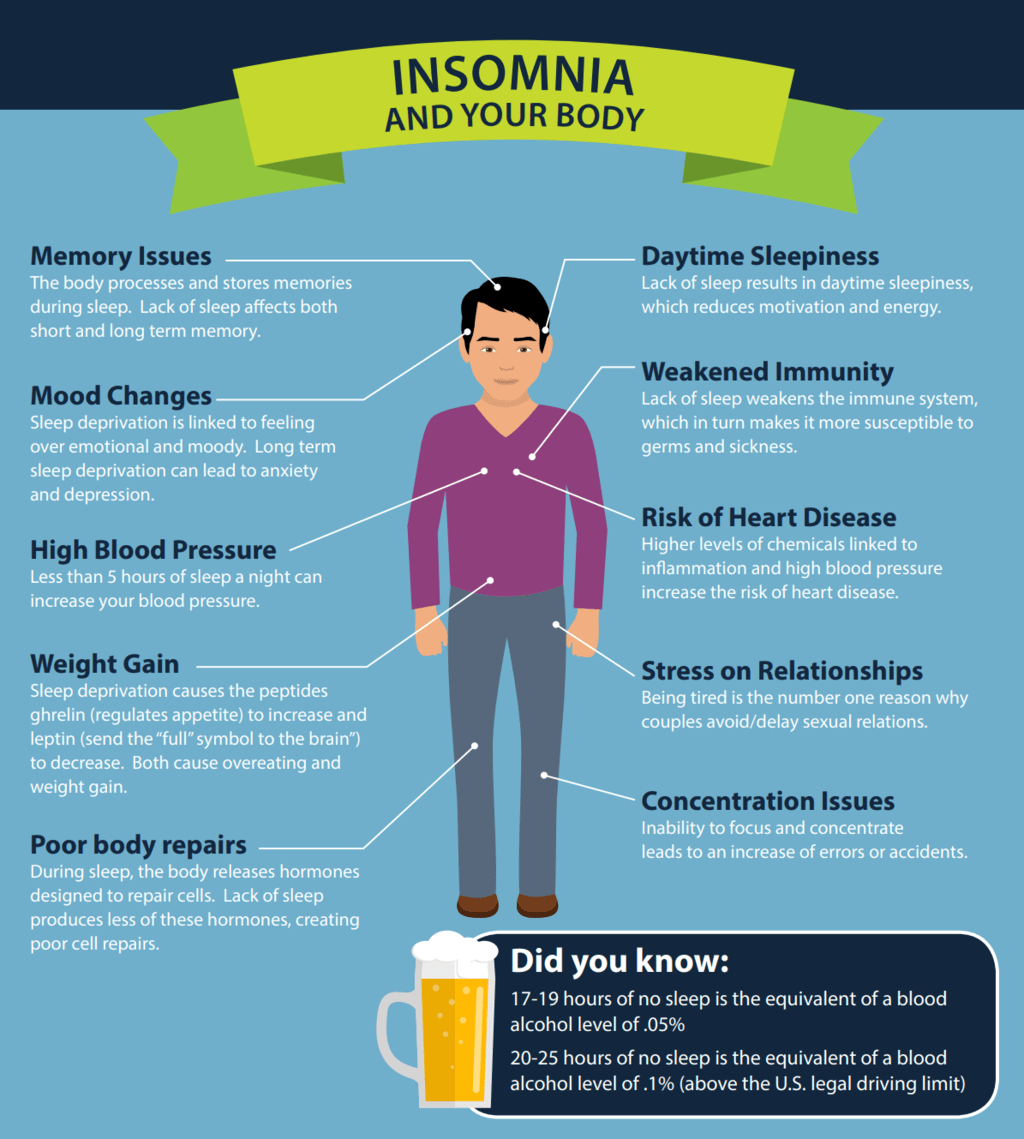
In recent years, studies have proved that a restful night’s sleep goes hand in hand with specific vitamins and minerals. There are seven incredible known sleep aids, and when we are deficient in these nutrients, we begin to notice problems. One of these problems is sleep apnea. The seven essential sleep aid nutrients are:
- Vitamin D
- Affects sleep quality as well as quantity. It’s known that Vitamin D links to regulating our bio clocks. If you notice you aren’t able to stay asleep once you fall asleep, you could have a Vitamin D deficiency
-
- Calcium is associated with a lack of REM sleep, causing you to feel as though you haven’t slept much even after a full night’s sleep, if you have a deficiency. It has a calming effect on the central nervous system that allows us to rest soundly and deeply. It also helps the brain produce melatonin.
- Zinc
- Zinc is another nutrient that affects the quality and quantity of sleep you are getting. Having enough Zinc can have a calming effect on the body, as well as a natural antidepressant effect on the brain.
-
- Iron can also interfere with the quality of sleep you are or aren’t getting. An iron deficiency can lead to anemia, as well.
-
- This vitamin is a powerful antioxidant that protects healthy brain function. These antioxidants appear to help with sleep-related issues. It also helps with dream recall and fighting against memory loss. Not only this, but enough Vitamin E can even help your nighttime breathing and help lessen the effects of sleep apnea.
-
- Not only does Vitamin C help support immunity, cardiovascular health, and healthy bones, skin, and teeth, but it also is a powerful sleep aid. Even on the nights when you don’t get to sleep long, Vitamin C will help you wake up refreshed and keep your brain functioning effectively.
-
- Vitamin B6 is a great sleep aid because it helps your body make melatonin and serotonin. These two hormones are essential for healthy sleep and happy brain function. People who have enough B6 are also at less of a risk for depression.
Making sure you aren’t deficient in any of these vitamins and minerals will help you take back the control of your sleep quality. That said, it doesn’t mean you have to eat foods rich in these nutrients right before bed either. You can eat them at all hours of the day, but as long as you keep up on them, your brain and body will thank you for it.
It is important to note that eating heavy meals for dinner isn’t necessarily recommended for optimal digestive health, so some of these nutrients are better to receive during the day anyway. Some foods are useful sleep aids and also healthy to eat before bed, though, and these five foods are listed below.
If you’re struggling to find or cook vegan meals that contain all the required vitamins, we suggest taking a look at our list of the best vegan meal kits for 2020. It’s a simple and a quick way to find great, and healthy recipes as a vegan.
Why Am I Sleeping Less After Going Vegan?
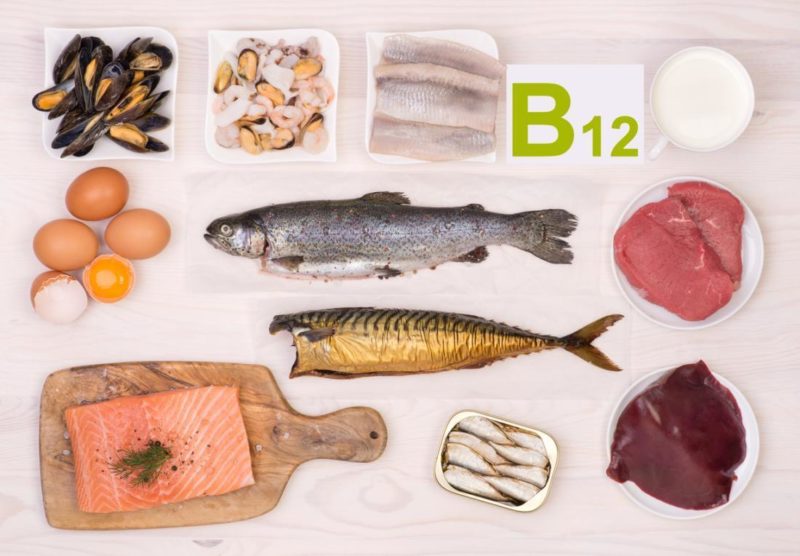
The vegan diet is infamous for lacking in the critical vitamin, Vitamin B12. Having a Vitamin B12 deficiency can cause all sorts of physical problems, including:
- Fatigue
- Lightheadedness
- Loss of appetite
- Muscle weakness
- Vision loss
Not only this but just like iron, a Vitamin B12 deficiency can cause anemia. In regards to the sleep cycle, though, there is mixed evidence regarding how Vitamin B12 directly affects sleep. Some studies show a link between low levels of B12 and insomnia, while other studies have shown that high levels of B12 can be associated with restless sleep and frequently disrupted sleep cycles.
Regardless, it is difficult for vegans to get the appropriate amount of B12 without the help of fortified nut and soymilks. If you are making your own nut and soymilks, then you will be missing out on this avenue as well, but some whole-grain cereals and nutritional yeast contain vitamin B12 too. That said, many vegans will supplement their B12 intake with the help of B12 vitamins.
Proper sleep quantity and quality are necessary for healthy brain function. Our brains rely on uninterrupted REM sleep every single night for optimal function. That’s why it is essential to pay attention to how well and how long you’re sleeping at night. Our brains are like computers, and if they aren’t well taken care of and maintained, then other problems will arise within our bodies, aside from just sleep troubles.
Top 5 Vegan Foods or Snacks to Eat Before Bed
It is imperative to note that eating these foods will not work immediately. It is not like taking sleeping aid medicine, for instance. These are foods that will help you naturally build up the necessary vitamins and minerals to help you slowly get on a healthy sleeping schedule. Doing this naturally instead of relying on synthetic sleep aids will increase your chances of making it a habit. It will also introduce a healthy diet regimen into your life.
1. Fruits Help You Sleep
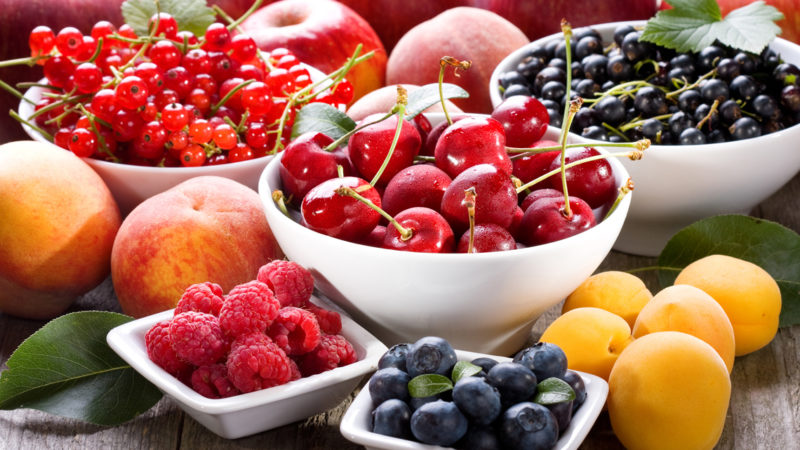
Certain fruits contain melatonin and will help you fall asleep faster and stay asleep throughout the night. Fruits are also easy on the digestive system, which makes them the perfect foods to eat before trying to go to sleep.
Some fruits that are known to be filled with melatonin and great for sleep aids are:
- Tart cherries
- Bananas
- Bananas are also high in potassium and magnesium which are natural muscle relaxants
- Kiwis
- Kiwis are also high in serotonin, making them a natural antidepressant
- pineapple
- Goji berries and raisins
Despite fruits being high in natural sugars, they will still help with sleep if you eat them consistently over a period of time. Not only this but eating a banana or a handful of tart cherries will curb your appetite enough before bed to keep the hunger pains away while you sleep.
2. Nuts Help you Sleep
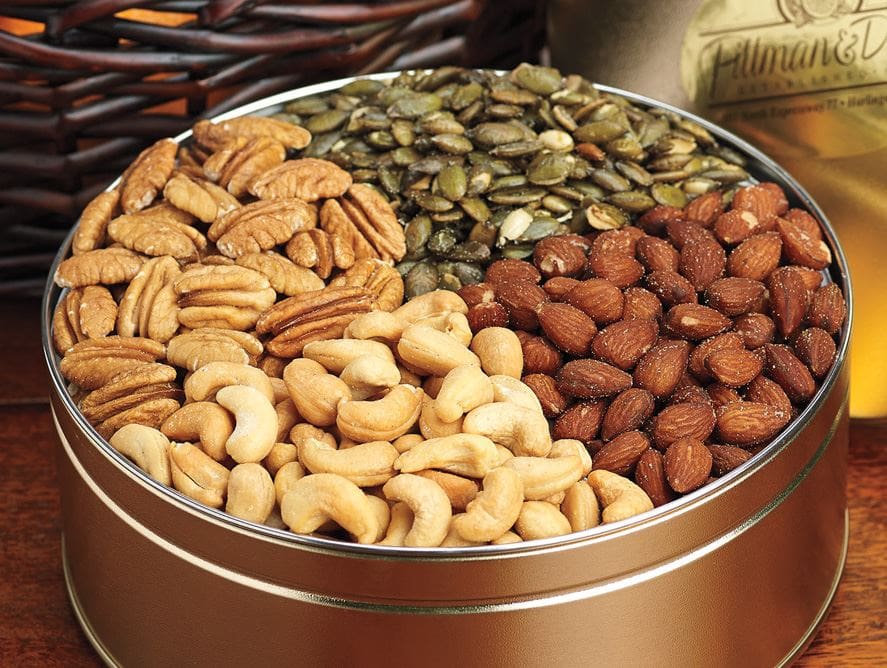
Nuts are considered to have the highest amount of melatonin of any plant food. They are also a good source of heart-healthy fats and Zinc. Zinc is a significant sleep aid. Walnuts and almonds specifically also contain melatonin for a more regulated sleep cycle. This also includes nut butters. Organic almond butter is not only good for you and will fill you up before bed, but it is a great natural sleep aid.
Almonds are an especially useful sleep aid because they also contain magnesium, as well as protein. You can never really go wrong with eating a handful of raw almonds any time of day or night. A great bedtime snack for anyone, especially vegans, is almond butter paired with bananas. It is the perfect blend of sweet and salty, while also providing your body with essential nutrients.
3. Oats Help you Sleep
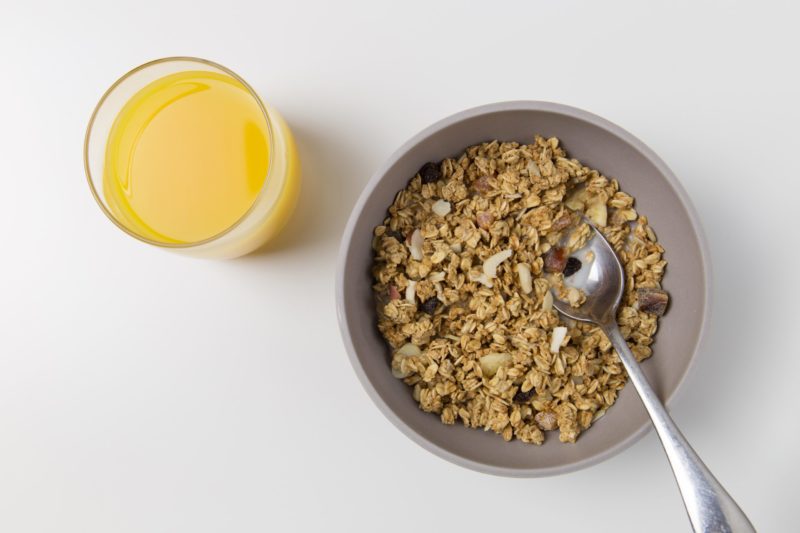
Making oatmeal or a jar of overnight oats to eat before bed is a great way to fill up your stomach and help you fall asleep at the same time. Oats are a great source of fiber. If you combine oatmeal with seeds and fruit on top, this is considered one of the healthiest plant-based meals to eat before bed.
Oats are a great natural sleep aid not only because it’s a hot meal before bed, but they are also high in melatonin. Like the other foods on the list, the melatonin in oats will tell your brain it is time to relax and unwind for the day.
4. Seeds Help You Sleep
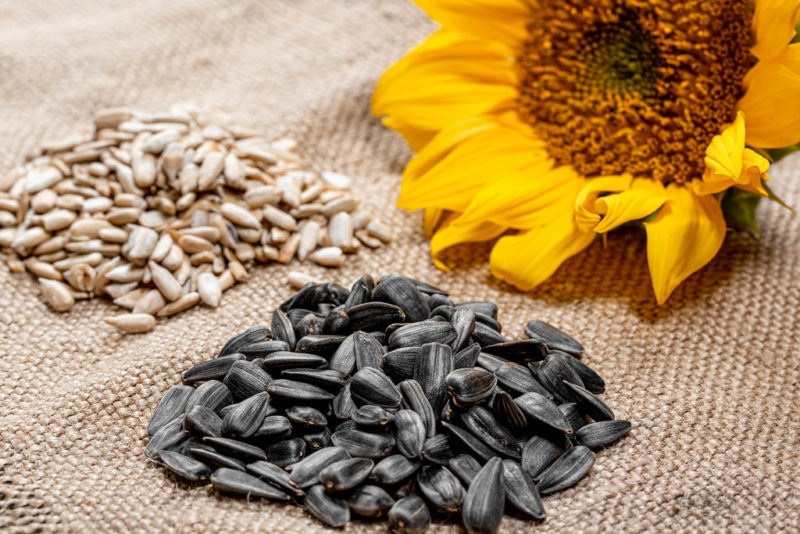
Seeds are a great addition to any vegan’s diet for many reasons, and now you can add another reason to the list. They are natural sleep aids! A great way to get a lot of essential nutrients before bed, including those that help with sleep, is by snacking on some pumpkin seeds or sunflower seeds. You can also sprinkle some hemp seeds or chia seeds on a banana, a bowl of oatmeal, or even a piece of whole-grain bread with some almond butter and you have yourself a nutritious sleep aid.
They are rich in magnesium, which is what helps with relaxation. They are also excellent sources of protein, which makes them rich in tryptophan. Tryptophan naturally helps your brain produce melatonin. Animal products are an excellent source for this and a key example of eating food that makes you sleepy. If you have a big meal of tryptophan, you are going to want to take a nap afterward.
Seeds are a good way to get some of this without overloading your digestive system right before bed. The ultimate sleep aid is when you combine tryptophan with carbohydrates, that is why it is suggested to throw some hemp seeds or pumpkin seeds into your bowl of oatmeal before bed. I like to add a spoonful of almond butter to my bowl as well.
5. Edamame & Beans Are Good For Sleeping
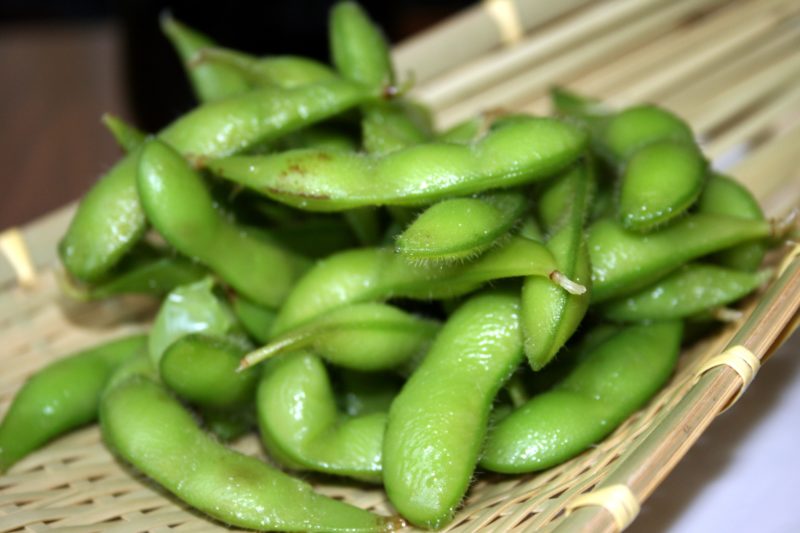
Edamame makes a great late-night snack or small meal that will also aid in sleep. Other beans will also help with this, but edamame is one of the easiest to prepare for a bedtime snack. That is unless you have leftover beans already ready to go in the refrigerator. Regardless, beans are also a great source of tryptophan and protein to help you fall asleep quicker and stay asleep naturally.
The study states that kidney beans have the highest amount of tryptophan, but any bean will due in aiding in a proper sleep cycle. Even roasted edamame makes for an easy and healthy snack to help you fall asleep. If you pair it with some whole-grain crackers, the carbs will help shuttle the tryptophan to your brain, making you feel sleepy even quicker.
If you have tried all of these methods and you are still finding yourself fatigued throughout the day, it could be the result of another vitamin deficiency. One that is relatively common among vegans too.
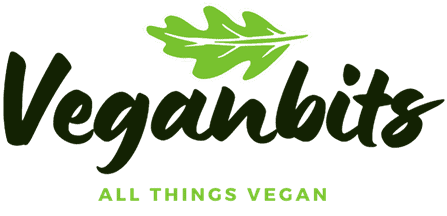
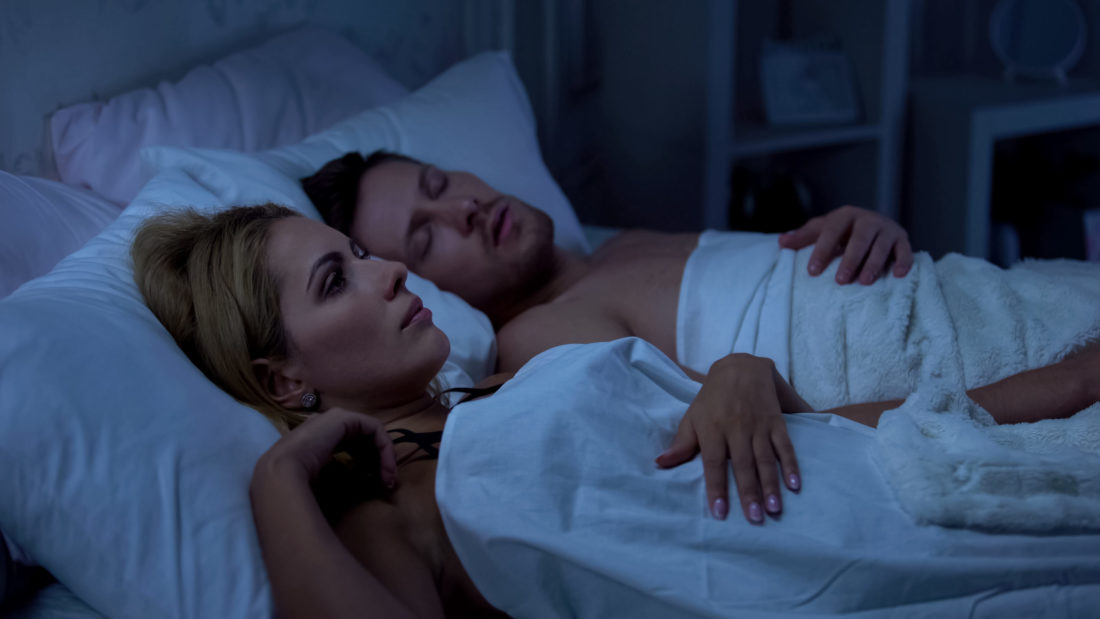
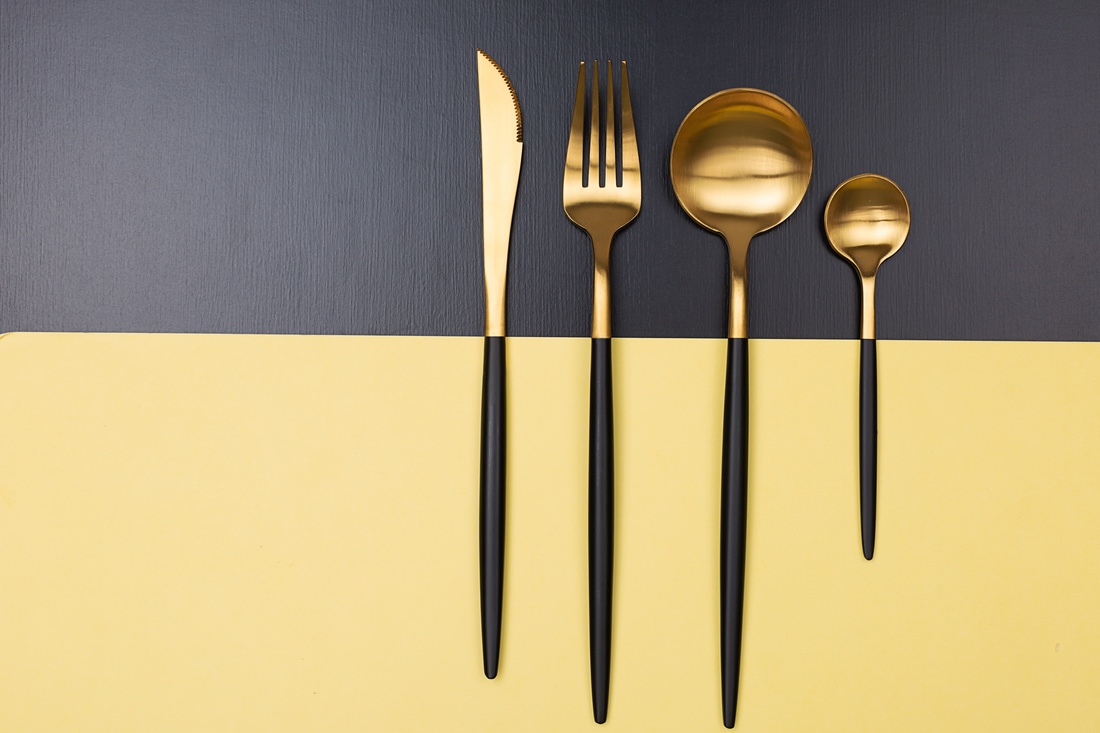
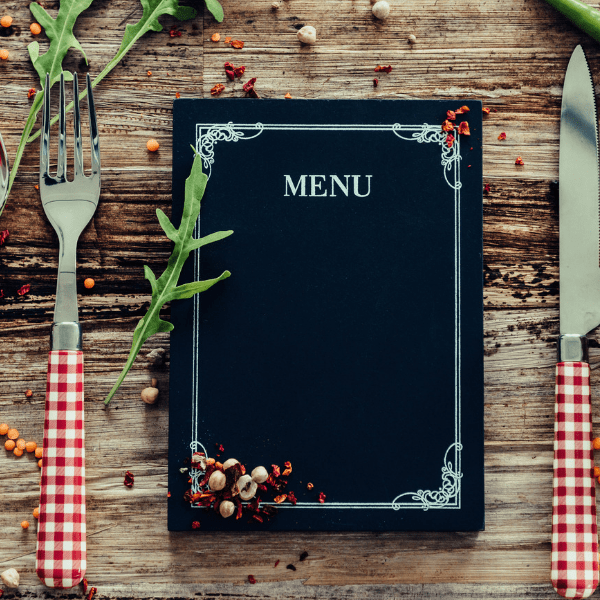
The truth is that banana is the best source of tryptophan, because other amino acids (protein) reduce the ability of tryptophan to convert to serotonin, and pretty much all sources of tryptophan but bananas are high in other amino acids, as well. Some doctors have even claimed that eating a few bananas a day can work as an antidepressant treatment.
Turkey is of course high-protein too, but it’s so high in tryptophan that some of it still gets to tickle the brain in the form of serotonin – or so they claim, while other researchers think that turkey meals make people drowsy simply by being heavy and containing plenty of carbs.
But there could be some individual variation, of course. I know no food has ever made me tired.
Have you tried melatonin? It solved my problems falling asleep which had lasted for 18 years! Tryptophan is also available as supplements, which might make it easier to get enough of it to actually produce noticeable effects.
Hmmm….but the only problem is, I eat those things nearly every single day and I don’t feel it’s had any effect on my sleep either way. Or did they mean you should have an extra serving of some of those foods closer to bedtime? Because going to sleep after eating beans sounds like a gastric disaster to me!!
Yes I eat like that often and it has no effect on my sleeping. I am sympathetic having suffered from insomnia for 25 years! I highly recommend Bach Flower Remedies spray called “Sleep”. I think an herbal remedy could be helpful too.
Maybe you’ve already tried this, but I find a nice, hot cup of camomile tea helps me sleep. The problem with this method, though, is I need to wake up earlier than usual to go to the bathroom! No lying around listening to the clock radio for 20 minutes!
Hi everyone,
Thanks for the tips. I actually did finally manage to get a good nights sleep, but in all honesty, I’m not sure it was the snack that did it. I think I was simply exhausted and my body just took over.
As I rarely have difficulty falling asleep (I know how lucky I am), I don’t know that I’ll have the occasion to try your suggestions, except perhaps for the chamomile.
Again, thank you everyone!
I’ve found avoiding certain foods to be just as important as consuming others. Spinach, for example, contains compounds which increase alertness. So does soy. So these are breakfast, lunch, or afternoon snack foods for me – not for dinner or dessert. Likewise chocolate.
If I can stay away from those and similar foods, and have a couple of bananas before bedtime, I usually sleep pretty well. Carob, plums, dates, and nuts are also helpful.
The other thing that is tremendously helpful, quite frankly, is when I stay on a raw foods diet – tons of energy, and blissfully sound sleep.
I’ve had pretty bad insomnia nearly all through my teenage years, at 18 I just finally found the thing that works for me.
A cup of chamomile tea and a banana before bed. I’ve known about chamomile tea for a while already, but coupled with a banana and I not only get a nice high quality sleep, but falling sleep is just so much easier.
I just never felt tired at night, even if I’d gotten up early and had a full day of school and whatever else. But chamomile and a banana makes me feel sleepy.
Thanks for the tips on vegan foods that make you sleepy. I’m going for the chamomile tea and banana. I just read a post of all the side effects in the drugs they are pushing for sleep. They are very scary! I’ve also found that when I eat more raw food and my greens that I sleep better. :)
I found out that if I have soy products (milk or tofu) before bedtime, I have lousy sleep. I also found out that soy milk is much, much higher than cow milk in aluminum, which is counterproductive to sleep.
I experimented with lactose-free cow milk (Lactaid) and had no problems sleeping well. I wonder if anyone else have the same sleeping problems with soy before bed? Tea is also high fluoride and aluminum, which I have abandoned.
Tastewise I prefer soy over cow milk, but the link between high tofu consumption & dementia in Haiwai study, and the correlation between Alzheimer and aluminum deposists in the brain bother me.
Anybody have additional info. to clarify the above, I’ll appreciate very much.
Lettuce tea is very good if you can’t sleep, so is valerian root tea. I also enjoy chamomile tea before bed, as others have stated. Carbohydrates anytime before bed make me ill. Everyone is different though. The Halia, otherwise known as Golden Milk, using soy, almond or coconut milk, sometimes with raw cacoa or carob is good for sleep and a pain reliever, which I find invaluable. Hope these help.
All these sides and snacks are well. I’m a big fan of Sonic Drive-In’s snacks and sides, which are mostly vegan.
If you’re dealing with vegan insomnia, incorporating the right plant-based foods into your diet can improve your sleep quality. Snacks rich in magnesium, melatonin, and tryptophan—like almonds, bananas, or a warm cup of chamomile tea—can promote better rest. For a savory option, explore the fresh and satisfying choices on the https://portillos-menu.com/ , which offers a variety of delicious items to enjoy anytime. Adding nourishing, plant-based foods to your evening routine may help you achieve more restful nights.
This was such an insightful read! I’ve struggled with sleep ever since switching to a vegan lifestyle, and it never occurred to me that nutrient deficiencies might be the culprit. The breakdown of key vitamins like Vitamin D, B6, and Magnesium really hit home. I’ll definitely start incorporating more of these vegan sleep-friendly foods into my diet.
Also, if you’re into food-related topics, I recently came across these great guides on https://portillomenu.com — worth checking out if you’re a foodie like me!
Super helpful guide on fixing vegan sleep issues! I’ve already added bananas and nuts to my evening routine. ? Also, if you’re into food stuff like I am, check out these cool menu pages: Portillo’s Hot Dogs and https://checkersmenus.com/ . Definitely useful if you’re planning a meal out.